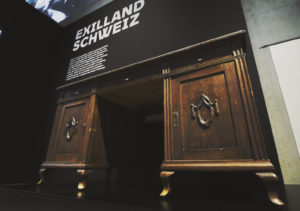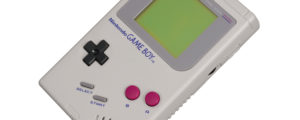
The Game Boy
Possibly the longest (video game) success story in the world began 28 years ago today.
The Game Boy is a portable video game console which was launched on 21 April 1989 by the Japanese video game manufacturer Nintendo. It followed a tradition as Nintendo had already laid the foundation in 1980 with its successful Game & Watch series. Unlike the Game Boy, these were simple skill games which were permanently installed in the consoles. If anyone wanted to play a different game, they had to buy a new device. While this was the usual principle for mobile consoles before the Game Boy, the technology was so cheap that, by the end of the 1980s, it was possible to transfer the principle of stationary video game consoles of separating hardware and software to mobile consoles too.
Usually, the relatively short life of all video game systems is determined by the short development cycles in the arms race and the need for increasing computing and graphics power. The Game Boy is one of the few exceptions. Even when it was released, the somewhat clumsily designed and simple black and white graphics of the Game Boy faced technically superior competition. The mobile consoles of competitors Atari (Lynx) and Sega (Game Gear) both offered an illuminated colour display and more computing power. However, both not only had the disadvantage that their technology made them more expensive to buy than the Game Boy, they also needed considerably more power, which lead to significantly shorter battery life – no small disadvantage for a mobile console.
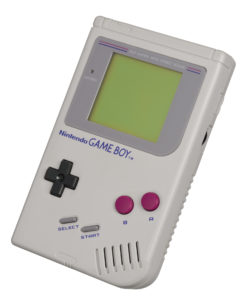
A Nintendo Game Boy from 1989.
The reason for them ultimately losing the battle to Nintendo was not due to the console itself as, with Tetris, Nintendo included a game with the Game Boy, that was soon to become almost synonymous with Game Boy. Because it was ideally suited to the small display with its abstract graphics and was easy to understand because of its simple but challenging game principle, Tetris grew alongside the Game Boy to become one of the most famous video games to date.
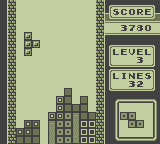
Tetris gameplay on the Game Boy.
After taking out the competition, Nintendo was able to keep the Game Boy almost technically unchanged throughout the 1990s and sell over 100 million devices with slight updates (GB Pocket 1996, GB Colour 1998, GB Advance 2001, GB Micro 2005). The deciding factor for success was that the older games could also be played on any new model, and even in better quality. However, a game once again came to the ageing Game Boy's aid – just like in the beginning: Pokémon came onto the market in 1998 as one of the biggest game hits of all time – of course for the small, enduring console which had left its original grey behind.
From 2004, the new Nintendo DS mobile consoles slowly replaced the outgoing Game Boy line. The inventor of the Game Boy, Gunpei Yokoi, was not destined to have such a long career at Nintendo, however. He left Nintendo in 1996, after developing a 3D version of the Game Boy in 1995, the Virtual Boy, which was a commercial flop. Yokoi died just a year later in a car accident.
However, the Game Boy still lives on today in the hands of its many fans, despite ceasing production. Consequently, it has long exceeded its value as a pure gaming console, for example, it is being used as an instrument for what is known as "chiptune" music. Musicians are capitalising on the unofficial music programs for the Game Boy which allow for both composing and playing back sounds and therefore resurrecting the typical sounds from the 8-bit era. What more convincing proof of the cultural importance of a machine can there be than the fact that, even when technically obsolete, it experiences worldwide fame and uses beyond its original purpose!
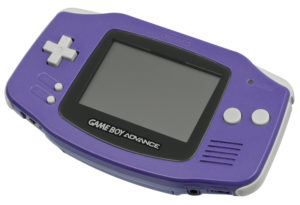
A Game Boy Advance from 2001.
Musicians are capitalising on the unofficial music programs for the Game Boy to compose their own 8-bit music.



